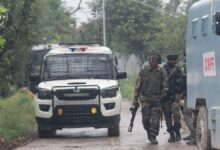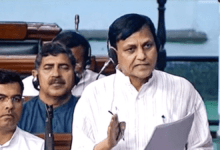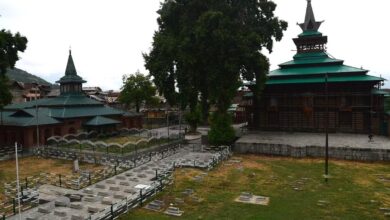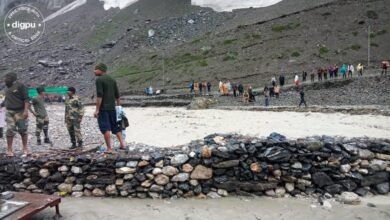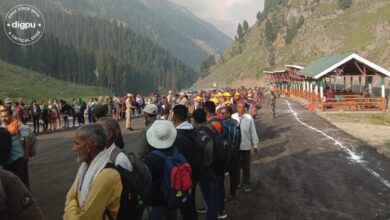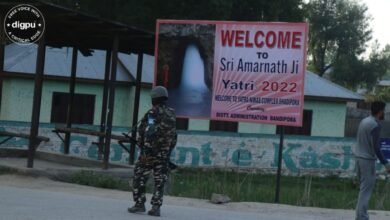As delimitation process concludes, J-K’s new electoral map invites scathing criticism from political parties
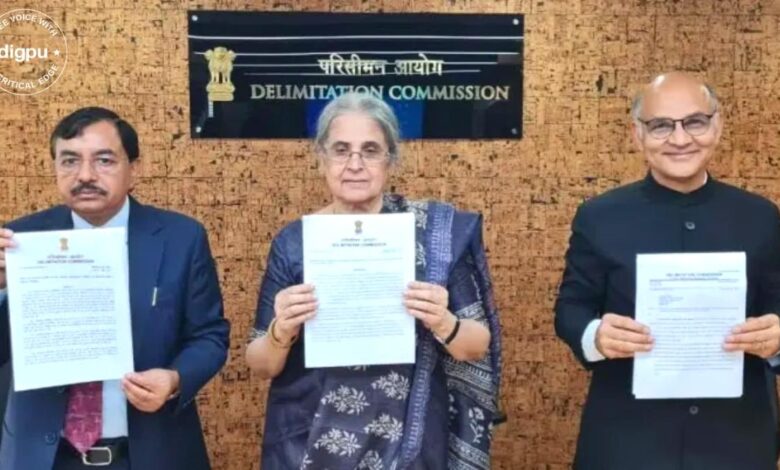
Due to the ‘widespread support’ for the proposed constituency name changes, the Commission claimed that it has approved the majority of the representations
The two-year delimitation process for Jammu & Kashmir came to an end on Thursday, with a three-member panel entrusted with the assignment of releasing the Union Territory’s final electoral map.
After holding its meeting, the Commission, led by former Supreme Court Judge Justice (retired) Ranjana Prakash Desai, issued the final delimitation decision. The order became effective on Thursday, May 5, after being published in the Gazette of India.
According to the revised electoral plan, 43 Assembly constituencies (AC) in J&K would be in the Jammu area and 47 in Kashmir.
According to the scheme, nine Assembly seats have been set aside for scheduled tribes, six in the Jammu area and three in the Valley. In addition, seven seats in the J&K UT Assembly have been set aside for scheduled castes.
The Commission also revealed the borders of five Parliamentary seats in Jammu and Kashmir, one of which was created by uniting the Valley’s Anantnag area with Jammu’s Rajouri and Poonch.
The Commission stated that it approved the majority of the representations about the proposed constituency name changes due to the popular feeling involved.
Among the notable changes include Tangmarg-AC becoming Gulmarg-AC, Zoonimar-AC became Zaidibal-AC, Sonwar-AC became Lal Chowk-AC, Padder-AC became Padder-Nagseni-AC, Kathua North-AC became Jasrota-AC, Kathua South-AC became Kathua-AC, Khour-AC became Chhamb-AC, Mahore-AC became Gulabhgarh-AC and Darhal-AC became Budhal-AC as per the new electoral map.
The Commission asserted that some of the representations pertaining to the shifting of tehsils from one Assembly constituency to another were found logical and were, therefore, accepted. In this connection, the changes include shifting of tehsil Shrigufwara from Pahalagam-AC to Bijbehara-AC, shifting of Kwarhama and Kunzar tehsils to Gulmarg-AC and redrawing Wagoora-Kreeri-AC having Kreeri and Khoie tehsils and part of Wagoora and Tangmarg tehsils, shifting of Darhal tehsil from Budhal-AC to Thannamandi-AC.
Centre advised allowing for nomination of two members among Kashmiri migrants in Legislative Assembly
The delimitation panel has also suggested to the Central government that at least two members of the Kashmiri migrant community be nominated to the Jammu & Kashmir Union Territory Legislative Assembly.
The panel’s report recommends that the Indian government provide legal provision for the nomination of at least two members (one of whom must be a woman) from the Kashmiri migrant population to the Legislative Assembly.
According to the Commission’s suggestion to the Central government, these members may be given power equal to that of nominated members of the Union Territory of Puducherry‘s Legislative Assembly.
Pertinently, the Central government has the right to nominate three MLAs in the Legislative Assembly of Puducherry, and their powers are comparable to those of elected lawmakers.
The panel also advised the Central government in its report that it explores possibilities of granting displaced people from Pakistan-occupied Jammu and Kashmir some representation in the Jammu and Kashmir Legislative Assembly by nominating legislators from Pakistan-occupied Jammu and Kashmir.
Political parties discontent over the final delimitation plan
The mainstream political parties in Jammu and Kashmir have voiced their displeasure with the delimitation panel’s final report on constituency delimitation in the Union Territory.
In a tweet, the National Conference (NC) stated that they are looking into the ramifications of these proposals for particular Assembly districts.
In a tweet, NC said that the party has seen the Delimitation Commission’s final recommendations and they are looking at the consequences of these proposals for specific Assembly seats.
“No amount of gerrymandering will change the fact that voters will punish the BJP and its proxies for what they have done to J&K over the previous four years once elections are held,” the party said.
The Peoples Democratic Party (PDP), on the other hand, said in a statement that the delimitation exercise has been viewed by the party as an extension of the process that began on August 5, 2019, to disempower individuals from a specific community and area.
In a statement, the Peoples Conference (PC) said that the delimitation report is a repetition of the past. It claimed that behind the scenes, the same established entities are in charge.
“As in the past, Kashmir has been discriminated against and nothing has changed. Only the level of disempowerment is higher,” the party said.
The Delimitation Commission has delivered its final report despite a Constitutional freeze on the increase or decrease of Parliamentary or Assembly seats, according to the CPI (M).
